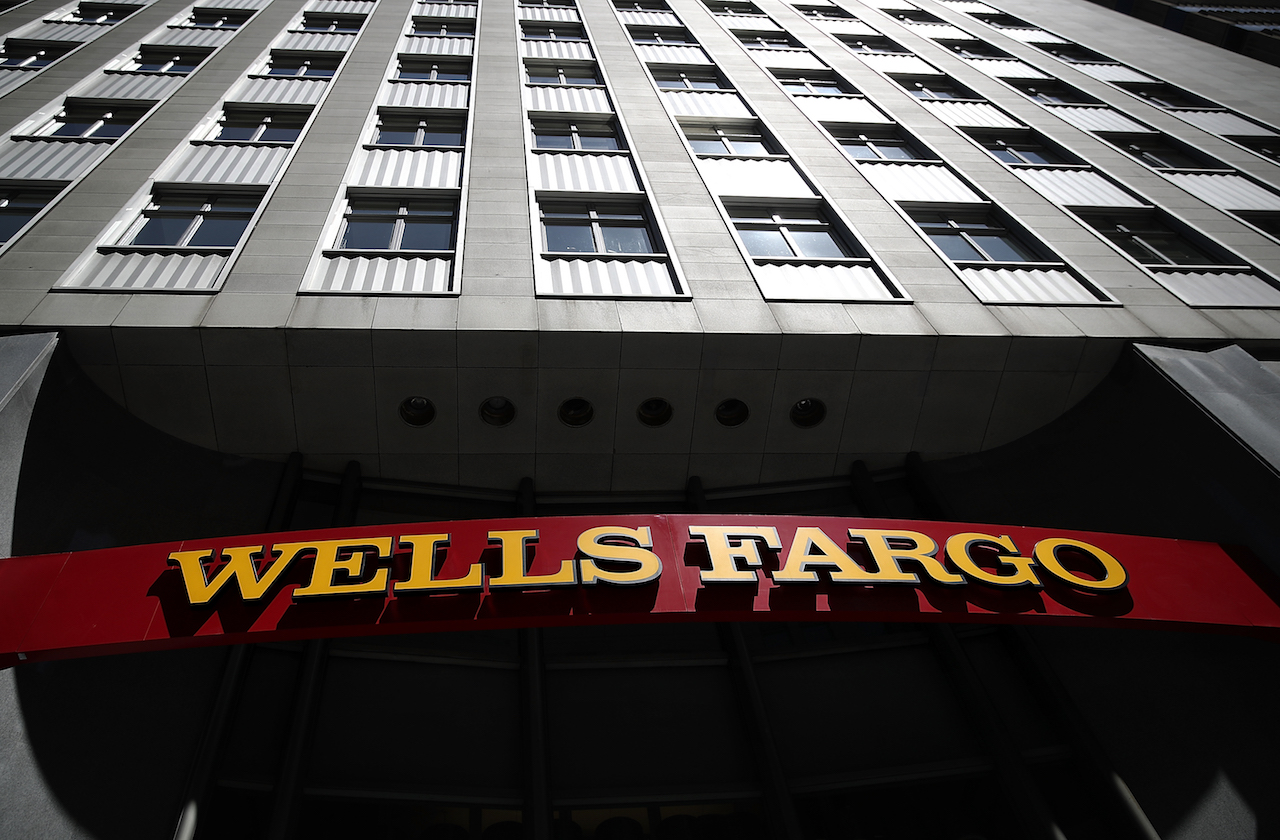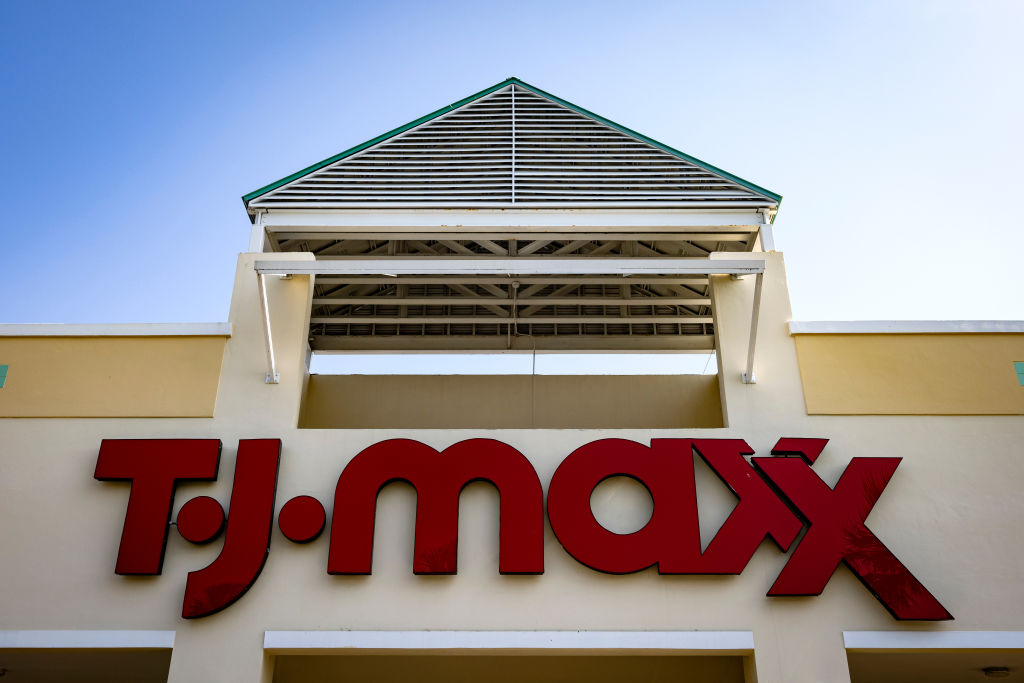Is Target Stock a Buy on the Dip After Disappointing Earnings?
Target shares are reeling after the discount retailer reported a third straight quarterly earnings miss.


Profit and prosper with the best of Kiplinger's advice on investing, taxes, retirement, personal finance and much more. Delivered daily. Enter your email in the box and click Sign Me Up.
You are now subscribed
Your newsletter sign-up was successful
Want to add more newsletters?

Delivered daily
Kiplinger Today
Profit and prosper with the best of Kiplinger's advice on investing, taxes, retirement, personal finance and much more delivered daily. Smart money moves start here.

Sent five days a week
Kiplinger A Step Ahead
Get practical help to make better financial decisions in your everyday life, from spending to savings on top deals.

Delivered daily
Kiplinger Closing Bell
Get today's biggest financial and investing headlines delivered to your inbox every day the U.S. stock market is open.

Sent twice a week
Kiplinger Adviser Intel
Financial pros across the country share best practices and fresh tactics to preserve and grow your wealth.

Delivered weekly
Kiplinger Tax Tips
Trim your federal and state tax bills with practical tax-planning and tax-cutting strategies.

Sent twice a week
Kiplinger Retirement Tips
Your twice-a-week guide to planning and enjoying a financially secure and richly rewarding retirement

Sent bimonthly.
Kiplinger Adviser Angle
Insights for advisers, wealth managers and other financial professionals.

Sent twice a week
Kiplinger Investing Weekly
Your twice-a-week roundup of promising stocks, funds, companies and industries you should consider, ones you should avoid, and why.

Sent weekly for six weeks
Kiplinger Invest for Retirement
Your step-by-step six-part series on how to invest for retirement, from devising a successful strategy to exactly which investments to choose.
Target (TGT) stock tumbled Wednesday after the discount retailer once again missed Wall Street's quarterly earnings estimate and warned that a key sales metric will decline during the critical holiday selling season.
Even more troubling for investors in Target stock is that the chain has problems that are company-specific.
For example, fellow discount retailer Walmart (WMT) wowed investors on Tuesday after it reported better-than-expected quarterly results, raised its outlook and announced a new $20 billion share repurchase program.
From just $107.88 $24.99 for Kiplinger Personal Finance
Become a smarter, better informed investor. Subscribe from just $107.88 $24.99, plus get up to 4 Special Issues

Sign up for Kiplinger’s Free Newsletters
Profit and prosper with the best of expert advice on investing, taxes, retirement, personal finance and more - straight to your e-mail.
Profit and prosper with the best of expert advice - straight to your e-mail.
Walmart's trifecta of good financial news threw Target's dismal performance into stark enough relief. Making matters worse, we also learned on Wednesday that U.S. retail sales for October jumped 1.3%. Not only did that top economists' estimate for a gain of 1.2%, but it represented the biggest increase in retail sales in eight months.
Better-than-expected quarterly results elsewhere in the retail sector also made Target's poor showing stand out. Offprice retailer TJX (TJX) beat the Street's profit forecast on Wednesday, as did home improvement chain Lowe's (LOW). Home improvement rival Home Depot (HD) reported better-than-expected quarterly results on Tuesday.
Compounding matters was the fact that Target has now missed analysts' earnings per share (EPS) forecasts for three consecutive quarters.
Target Stock Reels on Missed EPS
For the three months ended Sept. 30, Target posted adjusted EPS of $1.54, well short of the Street's forecast for adjusted EPS of $2.18, according to data from S&P Global Market Intelligence. True, revenue of $26.5 billion managed to exceed the Street's estimate for $26.4 billion in sales, but any relief was negated by the company's disappointing same-store sales forecast.
In a blow to Target's stock price (it gapped down almost 17% at the opening bell), management warned that same-store sales are projected to decline in the ongoing fourth quarter. Same-store sales, which typically measure sales at stores open at least a year, are a critical retail industry metric that shows how well a company is growing revenue at its existing store base.
And, by extension, its margins.
Target blamed the sluggish same-store sales on markdowns and more cautious consumers.
"In the latter weeks of the quarter, sales and profit trends softened meaningfully, with guests' shopping behavior increasingly impacted by inflation, rising interest rates and economic uncertainty," Chief Executive Brian Cornell said in a statement. "This resulted in a third-quarter profit performance well below our expectations."
Target reported strength in categories such as beauty, food and beverage, and household essentials, but continued softness in discretionary categories weighed on the bottom line. And while Target made progress on clearing out an inventory glut that built up during the first half of the year, its merchandise mix is still somewhat of a liability, analysts say.
"Clearly, TGT is struggling more than WMT due to its greater mix of discretionary goods, apart from beauty products, which was up in the mid-teens," writes CFRA Research analyst Arun Sundaram, who rates the stock at Hold.
Wall Street Calls Target Stock a Buy, but…
Analysts as a group, however, remain bullish on the name. Target stock has now lost a third of its value so far in 2022, and that has much of the Street calling shares a bargain.
Of the 32 analysts covering TGT stock tracked by S&P Global Market Intelligence, 15 rate it at Strong Buy, seven say Buy and 10 call it a Hold. That works out to a consensus recommendation of Buy, with high conviction.
Meanwhile, the Street's average target price of $190.44 gives Target stock implied upside of about 23% in the next 12 months or so. Add in the 2.4% yield on the dividend, and TGT stock's implied total return tops 25%.
Plenty of analysts regard Target stock as a buy-on-the-dip candidate, but it's understandable if its three straight quarters of earnings misses and a downbeat holiday forecast give would-be investors pause.
Patient investors could very well be rewarded for committing fresh capital to Target stock at current levels. On the other hand, what's the rush? Patient investors would probably do just as well to wait and see how Target's current quarter (or two) plays out.
Profit and prosper with the best of Kiplinger's advice on investing, taxes, retirement, personal finance and much more. Delivered daily. Enter your email in the box and click Sign Me Up.

Dan Burrows is Kiplinger's senior investing writer, having joined the publication full time in 2016.
A long-time financial journalist, Dan is a veteran of MarketWatch, CBS MoneyWatch, SmartMoney, InvestorPlace, DailyFinance and other tier 1 national publications. He has written for The Wall Street Journal, Bloomberg and Consumer Reports and his stories have appeared in the New York Daily News, the San Jose Mercury News and Investor's Business Daily, among many other outlets. As a senior writer at AOL's DailyFinance, Dan reported market news from the floor of the New York Stock Exchange.
Once upon a time – before his days as a financial reporter and assistant financial editor at legendary fashion trade paper Women's Wear Daily – Dan worked for Spy magazine, scribbled away at Time Inc. and contributed to Maxim magazine back when lad mags were a thing. He's also written for Esquire magazine's Dubious Achievements Awards.
In his current role at Kiplinger, Dan writes about markets and macroeconomics.
Dan holds a bachelor's degree from Oberlin College and a master's degree from Columbia University.
Disclosure: Dan does not trade individual stocks or securities. He is eternally long the U.S equity market, primarily through tax-advantaged accounts.
-
 The Cost of Leaving Your Money in a Low-Rate Account
The Cost of Leaving Your Money in a Low-Rate AccountWhy parking your cash in low-yield accounts could be costing you, and smarter alternatives that preserve liquidity while boosting returns.
-
 I want to sell our beach house to retire now, but my wife wants to keep it.
I want to sell our beach house to retire now, but my wife wants to keep it.I want to sell the $610K vacation home and retire now, but my wife envisions a beach retirement in 8 years. We asked financial advisers to weigh in.
-
 How to Add a Pet Trust to Your Estate Plan
How to Add a Pet Trust to Your Estate PlanAdding a pet trust to your estate plan can ensure your pets are properly looked after when you're no longer able to care for them. This is how to go about it.
-
 Why Wells Fargo's Revenue Miss Isn't Worrying Wall Street
Why Wells Fargo's Revenue Miss Isn't Worrying Wall StreetWells Fargo is one of the best S&P 500 stocks Wednesday even after the big bank's top-line miss. Here's what you need to know.
-
 Constellation Energy Stock Soars on Its $26 Billion Buy. Here's Why Wall Street Likes the Deal
Constellation Energy Stock Soars on Its $26 Billion Buy. Here's Why Wall Street Likes the DealConstellation Energy is one of the best S&P 500 stocks Friday after the utility said it will buy Calpine in a cash-and-stock deal valued at $26 billion.
-
 What Scott Bessent's Treasury Secretary Nomination Means for Investors
What Scott Bessent's Treasury Secretary Nomination Means for InvestorsMarkets are reacting positively to Trump's nomination of Scott Bessent for Treasury secretary. Here's why.
-
 TJX Stock: Wall Street Stays Bullish After Earnings
TJX Stock: Wall Street Stays Bullish After EarningsTJX stock is trading lower Wednesday despite the TJ Maxx owner's beat-and-raise quarter, but analysts aren't worried. Here's why.
-
 Cisco Stock: Why Wall Street Is Bullish After Earnings
Cisco Stock: Why Wall Street Is Bullish After EarningsCisco stock is lower Thursday despite the tech giant's beat-and-raise quarter, but analysts aren't concerned. Here's what you need to know.
-
 Apple Stock Slips After Earnings. Wall Street Isn't Worried
Apple Stock Slips After Earnings. Wall Street Isn't WorriedApple stock is trading lower Friday despite the iPhone maker beating expectations for its fiscal fourth quarter, but analysts are still bullish.
-
 Tesla's Robotaxi Event: What Wall Street Expects
Tesla's Robotaxi Event: What Wall Street ExpectsTesla’s robotaxi event kicks off next week. Here’s what Wall Street expects to see and how analysts feel about the stock heading into the event.
-
 Dell Stock: Wall Street Sees More Upside After Earnings
Dell Stock: Wall Street Sees More Upside After EarningsDell stock is higher Friday after the PC maker beat Q2 expectations, but analysts think there's more room to run. Here's what you need to know.